Should I choose to settle in the Yukon?
As mentioned previously, very few working holiday makers dare to go to the Yukon, in the northwest of Canada. It’s a remote territory, but one that promises adventure and unique northern experiences.
Deciding to settle in a specific city is a personal choice, but we will give you our pros and cons to help you decide whether life in the Yukon is for you.
The pros of moving to the Yukon
- Living in a small town makes it easy to get your bearings; amenities are accessible on foot.
- Living in the heart of nature, with 360° views and a frequent chance of seeing wildlife.
- Having outdoor adventures readily available on your doorstep.
- Locals are generally kind, friendly and helpful.
- Being able to try something new professionally, thanks to the different employment opportunities.
- Accessible for both English and French speakers (the Yukon is the third most French-speaking region in Canada, after Quebec and New Brunswick).
- The chance to discover the culture of the First Nations people.
- Experience sunshine as late as midnight in the summer.
- An increased chance of seeing the northern lights.
The cons of moving to the Yukon
- Living through long, freezing cold winters.
- Experiencing a lack of natural light during the winters, with daylight only lasting a few hours.
- Struggling to find a job in your chosen field.
- Having a limited choice of affordable and nutritious products at the supermarket.
- Needing a car to get around, especially if you want to explore the wilderness outside of the major cities (Whitehorse and Dawson).
- Limited availability of accommodation and expensive rent, especially if you’re looking for pet-friendly housing.
- Living in a small community where everyone knows each other can have disadvantages, as well as advantages.
Safety in the Yukon
Problems such as theft, assault, drink and drug use, etc. happen all across Canada. None of the towns in the Yukon appear in Canada’s ranking of the most dangerous places to live.
However, negative behaviours can be exacerbated in the Yukon, because the towns and villages are incredibly isolated. The high cost of living limits certain people’s access to resources.
As long as you use common sense, you should not have a problem with crime in the Yukon.
Weather in the Yukon
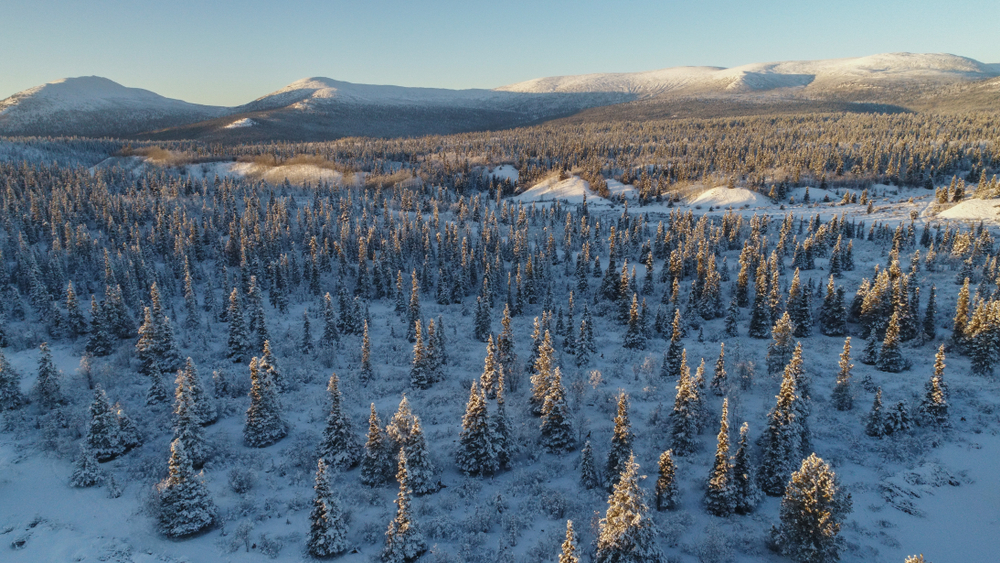
The Yukon is a territory located in the far north of Canada, so you can expect to be cold. The climate of most of the Yukon is subarctic, characterised by long and cold winters (generally from October to April) and short summers (around mid-June to mid-August). Average temperatures during summer reach 15°C; this is considered hot for the Yukon!
Spring is not very pleasant, as the white landscapes turn to brown mud (the only positive part of this season is the growth of fauna and flora). Autumn is rather mild with pretty, yellow colours.
Note that northern Canada is suffering from global warming faster than the rest of the country, which is having an impact on Yukon weather. Winters are becoming shorter and less harsh than they used to be.
The Yukon climate is generally dry, with not much precipitation (the heaviest rainfall happens around June). It is significantly wetter in the southeast of the territory, where precipitation forms in the mountains.
Testimonials from working holiday makers in the Yukon:
In Whitehorse
I arrived in the Yukon Territory in June 2019.
I had barely stopped in Watson Lake when I was offered a job, but I decided to continue to Whitehorse, not enamoured by my first stop. I was lucky because I found a job right away, in a small company that does a bit of everything: security, carpet delivery, carpet and window cleaning, various construction jobs, etc. I thought I would only stay in Whitehorse for two months, but I fell in love with the territory. I decided to spend the winter there, so I had to look for a place to live. That’s when it got complicated; finding an affordably priced, clean place close to the city centre is a real challenge. It took me a month.
What I like about Whitehorse is its proximity to nature, the bilingual community, the range of sports activities, and the isolation. For some, this would be a disadvantage but I see it as an advantage. Fewer people venture out here and those who make it are generally people with a positive frame of mind. I like the environment: the freezing cold makes the landscapes magical.
The negative aspects are the price of real estate, the difficulty making friends with the locals (they can be distant because they don’t want to get attached to temporary residents), the mosquitoes in summer, and the difficulty in finding a highly-qualified job, even when you have lots of college diplomas.
I like the small community where everyone knows everyone.
The calming feeling that comes from life here is so much more pleasant than back home or anywhere in a big city. I love the magnificent walks right on my doorstep, the forest and mountains as far as the eye can see.
The cons are that here, you have no nightlife, and a bad supply of consumer products compared to the south. New products sometimes arrive here a full year after they are out in the market elsewhere. The choice is so much less varied than elsewhere in the country. You can forget about eating fresh salad in the middle of winter (unless we can buy it in a pre-packaged bag).
We arrived in Whitehorse last June and were welcomed very warmly!
We were lucky enough to find accommodation with ease, thanks to my employer. The Garderie du Petit Cheval Blanc have been incredibly supportive during our expatriation. We love the gentle way of life in the Yukon, the relaxed pace, and the mutual support. We love being in contact with nature, wildlife and living through different seasons.
The hardest part is the distance from family and the fact that my partner has not yet found a job. If he succeeds, we will consider settling here more permanently.
In Dawson and elsewhere in the Yukon
To survive in Dawson, you have to accept living in the middle of nature with temperatures ranging from +35°C to -50°C.
The city offers decent services: stores, restaurants, entertainment, etc. There are many events and festivals throughout the year, though more in summer than in winter.
What I like most is the community spirit, which is even more present in winter, once the seasonal workers and tourists have left.
With each of my three years in the Yukon, my roots here grow more and more.
I live with my husband in a cabin off the grid, without running water, on the shores of Dezadeash Lake (40 kilometres from Haines Junction). In many ways this life is extreme: it’s extremely beautiful, but it requires hard work to be rewarded.
We enjoy exceptional tranquillity at the foot of the mountains of Kluane National Park, but sometimes it’s double-edged, like when we had a cold snap of -45°C for six days… We couldn’t go anywhere!
About 800 people live in Haines Junction, which makes it a human-sized and dynamic community, where you can easily get to know everyone. I like the cultural and artistic activities offered by Da Ku, the Champagne and Aishihik First Nations cultural centre, such as sewing or leather tanning workshops.
Currently pregnant, I can be seen at the local clinic, but having to travel to Whitehorse for specialist appointments is restrictive. We also have to travel to Whitehorse once every two weeks to do our shopping.












 Français
Français English
English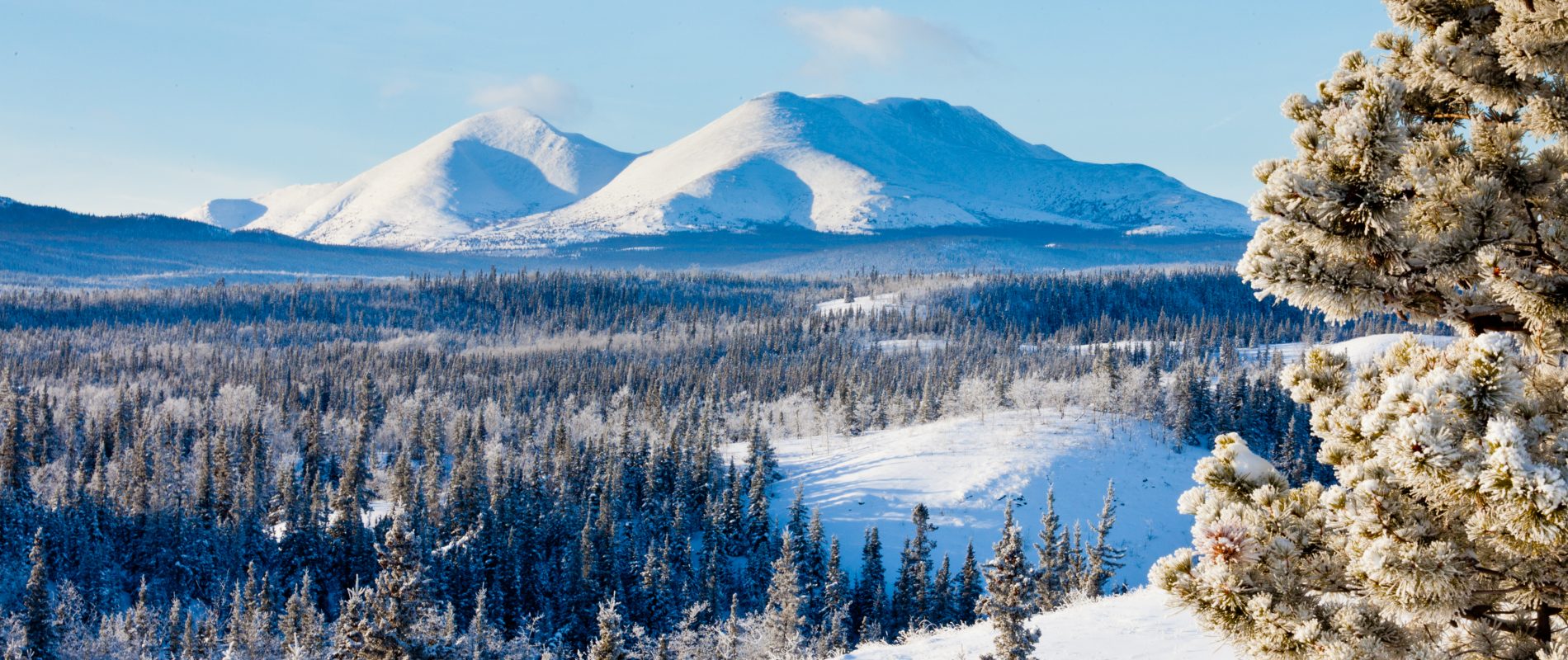


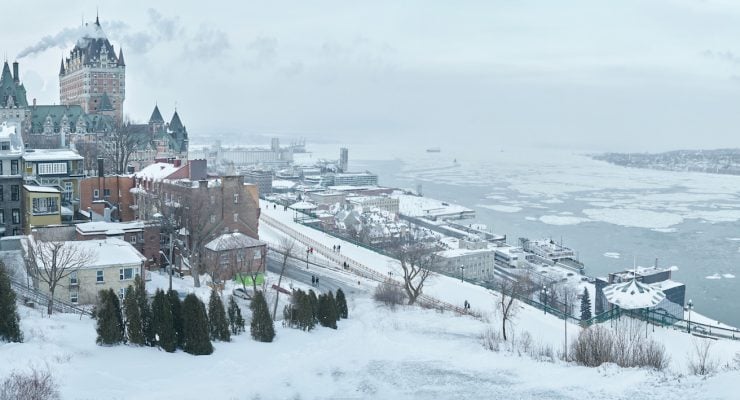
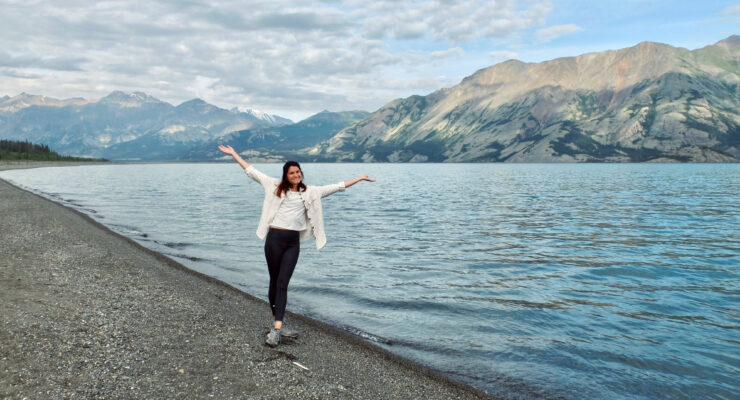
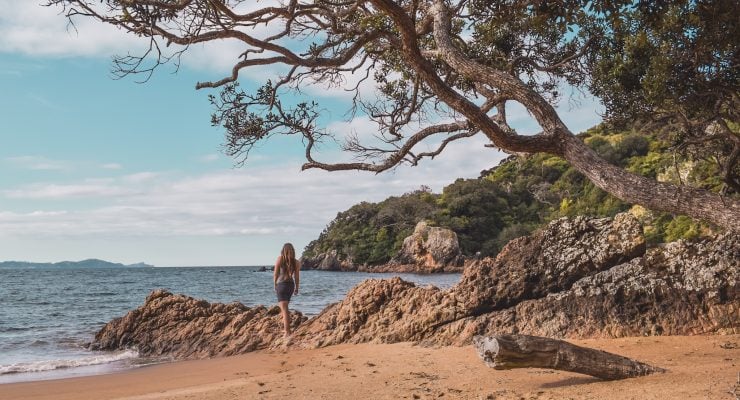
0 comments
{{like.username}}
Loading...
Load more